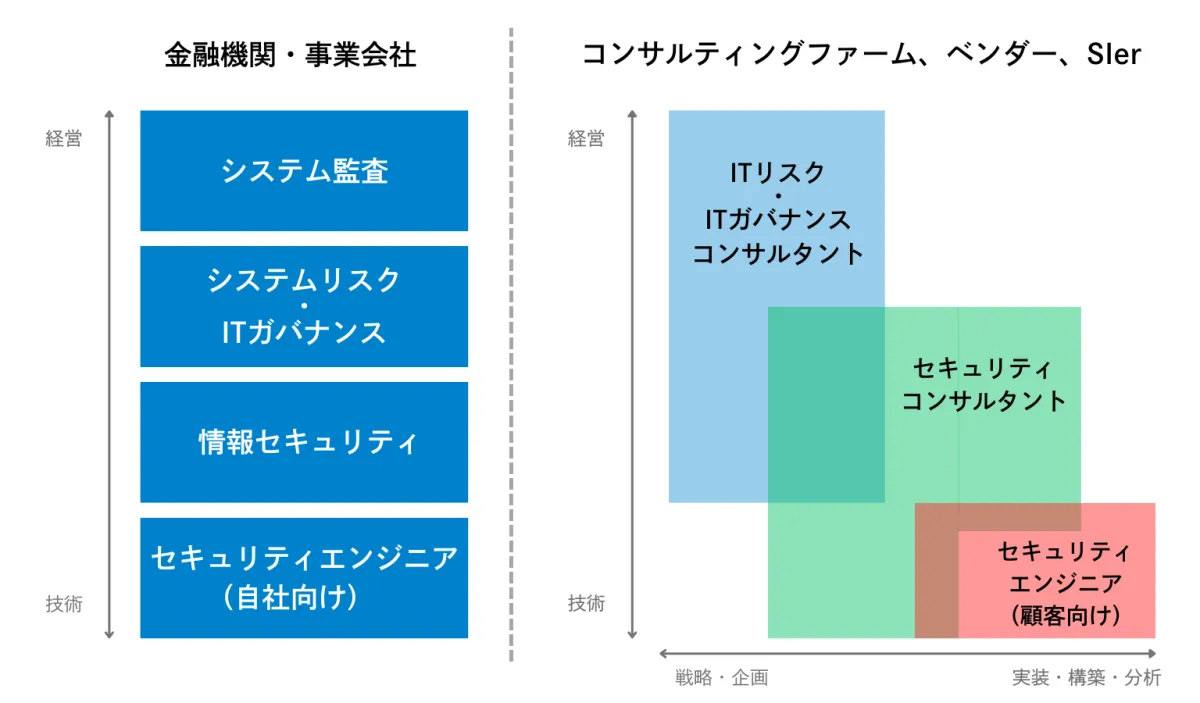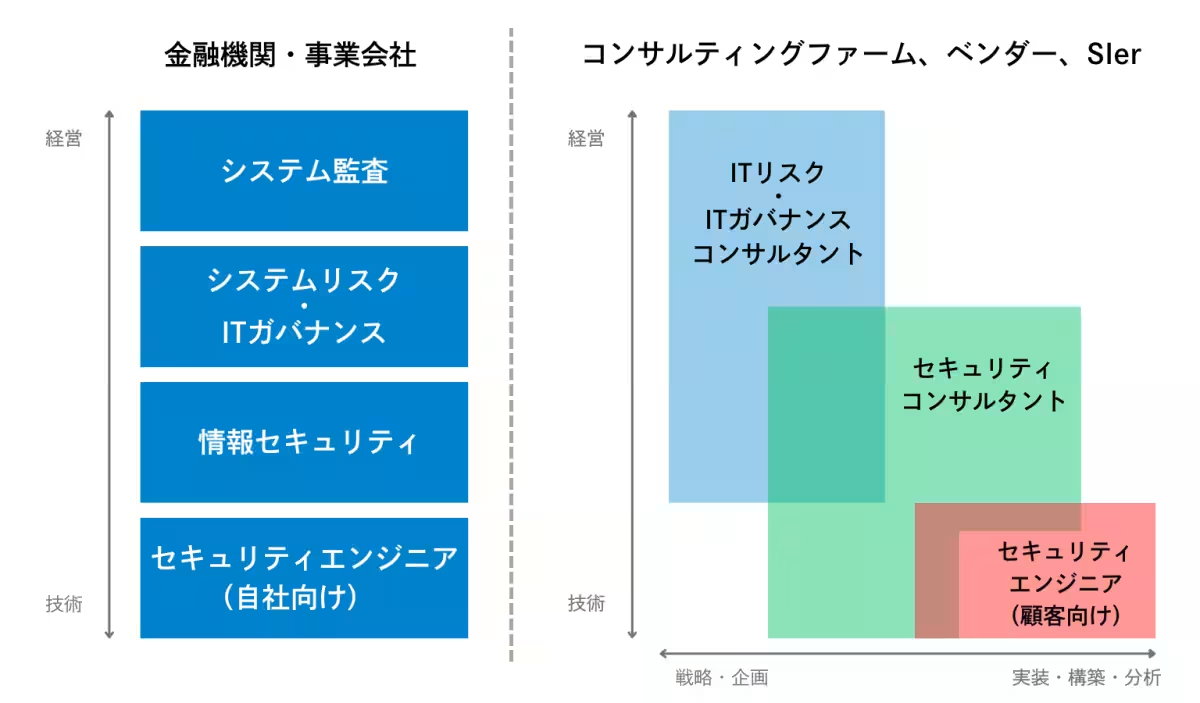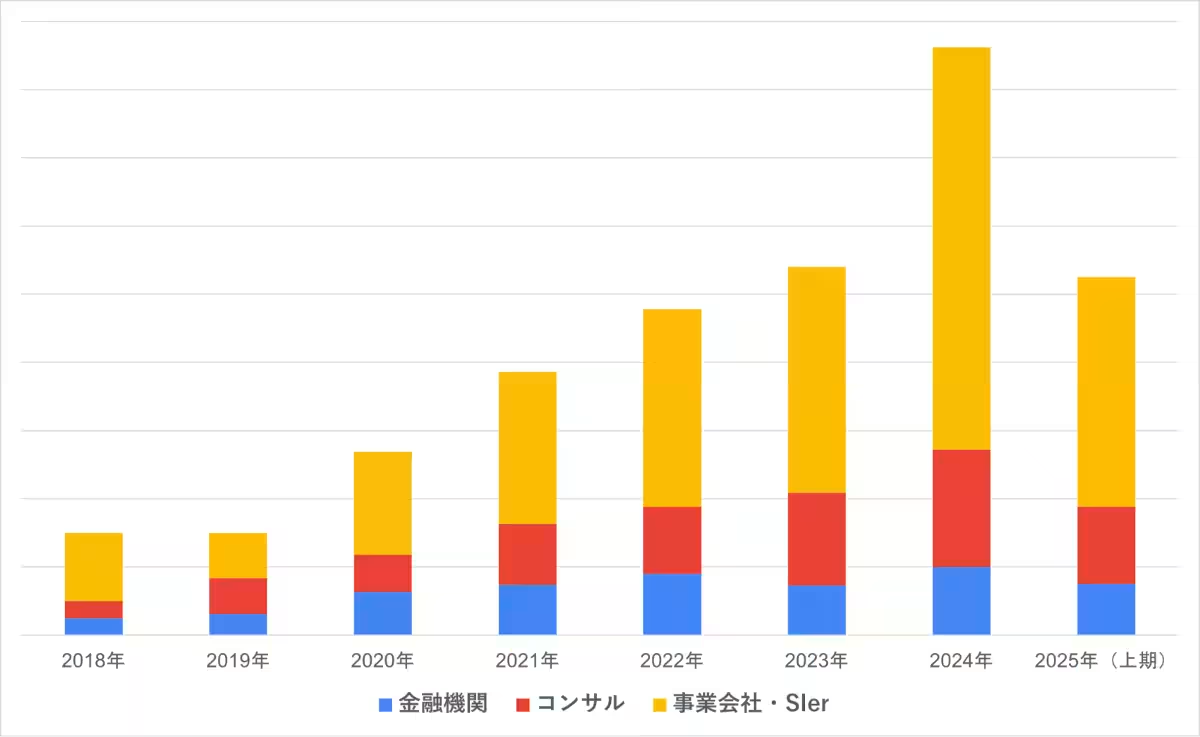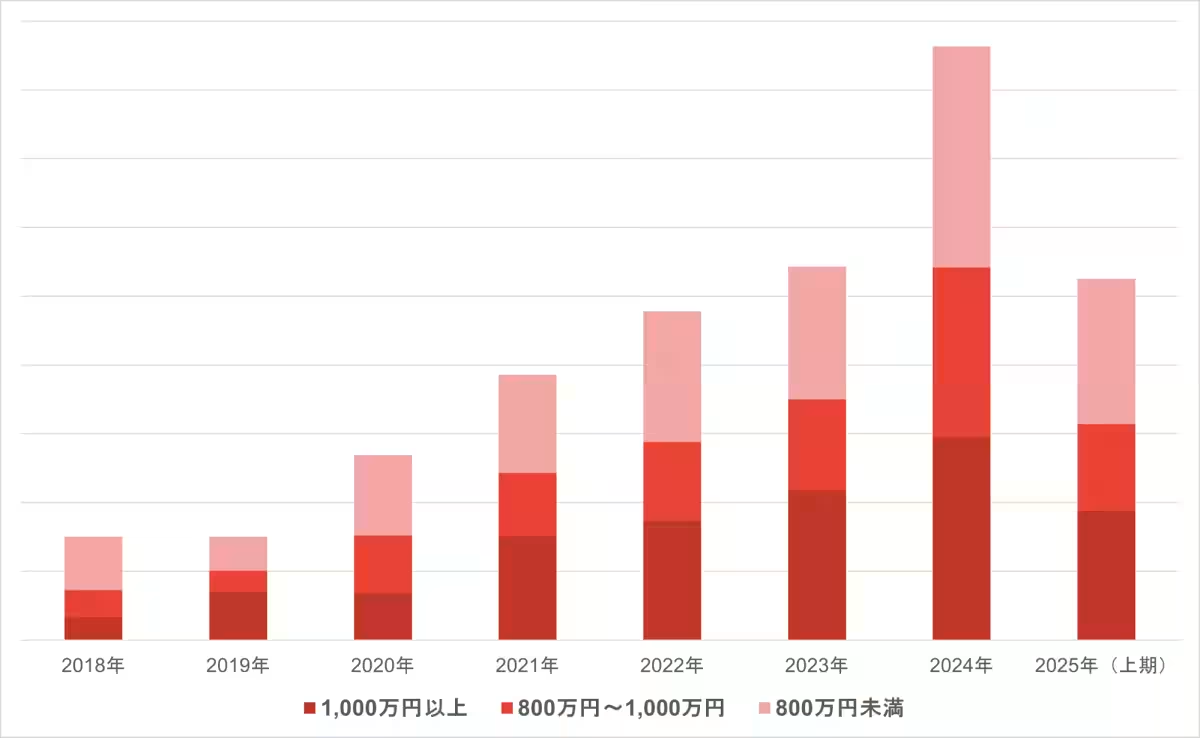

2025 Security Job Trends: Increasing Need for Talented Professionals and High-Class Positions
An In-Depth Look at 2025 Security Job Trends
As the demand for security professionals continues to rise, Kotora, a company based in Minato, Tokyo, led by CEO Rika Onishi, has conducted thorough research on the hiring trends within the security industry. This analysis highlights the increasing recruitment needs as we approach the first half of 2025. With growing emphasis on methodologies like 'Zero Trust' and the acceleration of digital transformation (DX), businesses are on the lookout for qualified security personnel.
Growing Demand for Security Professionals
The trend of hiring security experts is unmistakably upward. Factors contributing to this growth include the implementation of Zero Trust architectures and a notable rise in mergers and acquisitions (M&A), which have generated new roles within organizations. The most significant spike is seen among high-class jobs offering salaries exceeding 10 million yen, emphasizing the urgent need for specialists in product security tailored for applications and digital services.
Industry-Specific Job Increases
Understanding the varied job titles across different sectors sheds light on hiring trends. The overall hiring numbers exhibited a steady increase through 2023, and a sharp rise was notable in 2024. Particularly, after 2020, the numbers from business firms and SIers (System Integrators) showed substantial growth, which is expected to persist into the first half of 2025.
A remarkable trend observed in consulting firms pertains to the expansion of IT Risk and IT Governance consultants, particularly within auditing agencies. This growth is largely driven by increased compliance needs stemming from global regulations such as the Personal Information Protection Act and GDPR. More businesses are adopting global standards like NIST Cybersecurity Framework, leading to a uniform approach within the industry.
The post-COVID landscape has also seen a rise in companies expanding globally, thus necessitating the development of new governance frameworks based on NIST to parallel their overseas operations. This trend is not only prominent in large corporations but is also emerging in mid-sized firms, which indicates an expected further proliferation of these practices in the future.
Shifting Hiring Landscape: High-Class Roles on the Rise
Data shows that the proportion of job postings offering salaries over 10 million yen has surged since 2021. The ongoing trend indicates that this high-income tier will grow further into the second half of 2025, driven by an increasing demand for immediate-impact roles.
From 2019 to 2020, the pandemic catalyzed a swift transition toward remote work, prompting many organizations to reallocate IT budgets effectively. This allowed for the wide implementation of Zero Trust frameworks, including packages with EDR (Endpoint Detection and Response) and IDaaS (Identity as a Service).
As businesses shift back to conventional operations, the inadequacies of the previous IT environments in maintaining business resilience are evident. Consequently, medium-sized enterprises are beginning to rethink their strategies in light of anticipated challenges from 2030 to 2035, propelled by technological advancements like AI. As organizations work toward reinforcing their security infrastructure—such as the adoption of Zero Trust and cloud technologies—the demand for security professionals has drastically increased.
The Surge of Talent Needs Across Industries
Most prominently, consulting firms have seen an uptick in demand for project management and advisory roles due to the boom in Zero Trust solution implementations. There has emerged a crucial need for security consultants who can lead these transformative projects efficiently. Conversely, with the primary phase of system integration operations winding down, medium-sized consulting firms have begun to fill the gaps in operational improvements and integration challenges.
Moreover, the sophisticated nature of cyber threats has led to increased vacancies for offensive security roles, such as penetration testers and threat intelligence specialists.
The ongoing M&A frenzy among major corporations has significantly impacted security consultant roles, leading to a heightened demand for advisors skilled in optimizing infrastructure and IT costs post-merger. Interestingly, M&A advisory firms have also begun listing security consultant positions—a noteworthy shift in the market.
Professional Opportunities in SIer and Vendor Environments
The trends within SIers and vendors show a parallel narrative; as the sales of security solutions like EDR, IDaaS, SIEM (Security Information and Event Management), and ASM (Application Security Management) have seen upward trajectories, so too have the associated project demands from these suppliers. The pandemic has notably accelerated the adoption of remote work, prompting a wave of Zero Trust implementations.
Furthermore, companies, especially mid-sized ones, are beginning to allocate more resources to enhance their security measures beyond basic compliance, which has led to a growing complexity in the security solutions landscape.
Growing Importance in Financial Institutions
In the financial sector, there's a noticeable increase in job postings for positions with 10 million yen salaries, especially at the management level. Enterprises previously reluctant to pursue mid-career hires are now looking aggressively to fill positions in cybersecurity due to rising turnover rates. The push toward digital transformation has positioned the cybersecurity domain as a high-priority hiring area, particularly as companies work to meet the demands of evolving digital services and application landscapes.
Looking Ahead to the Second Half of 2025
The continuous rise in security job openings signals a rich landscape for expanding professional opportunities. However, with more companies entering the recruitment arena, the market is becoming increasingly competitive. Applicants may find it challenging to establish themselves solely as specialists within their domain.
In conclusion, the emphasis on agility, collaboration, and the ability to navigate multifaceted projects is paramount. Security professionals are now expected to be adept in broader business contexts, moving beyond traditional tech roles. As organizations strive for comprehensive oversight, possessing an extensive knowledge base will become more critical, and candidates holding advanced qualifications will be better positioned for success.





Topics Business Technology)










【About Using Articles】
You can freely use the title and article content by linking to the page where the article is posted.
※ Images cannot be used.
【About Links】
Links are free to use.